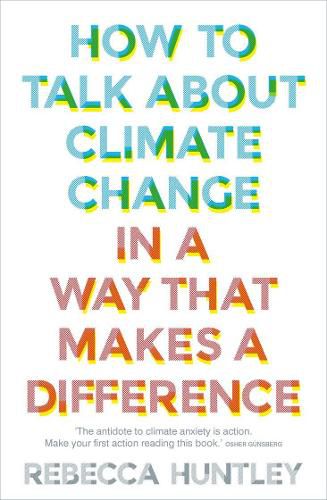Readings Newsletter
Become a Readings Member to make your shopping experience even easier.
Sign in or sign up for free!
You’re not far away from qualifying for FREE standard shipping within Australia
You’ve qualified for FREE standard shipping within Australia
The cart is loading…






$9.00 standard shipping within Australia
FREE standard shipping within Australia for orders over $100.00
Express & International shipping calculated at checkout
Rebecca Huntley is one of Australia’s most experienced and respected social researchers. As she quips, ‘I make a living out of understanding why people think the way they do.’ Here, in her sixth book, Huntley uses a tried and tested framework to examine our attitudes to the climate crisis facing us all.
Firstly, she tells us why the issue matters to her, follows with why it matters to us and then she examines why we feel like we do. Each chapter represents an emotion; think of the list of capital vices and you get the picture. Perhaps, for example, you feel guilt and that drives the way you behave in regard to our climate crisis. On the hand, perhaps you are frightened, or angry, or maybe you simply feel an enormous level of despair when discussing what we have done to our glorious planet. It’s possible you don’t even believe it is happening. By researching and considering why climate change conversations create such mixed emotions, Huntley allows a range of voices to emerge. And she finds these emotional responses are helpful to the discourse because they can identify why we feel the way we do. This knowledge, in turn, can assist with driving behavioural change. It can help us believe in hope. It certainly makes this book a completely refreshing and optimistic read.
Huntley dedicates a chapter towards the end of the book to the notion of love and why that emotion is our tool going forward. (Of course, she also includes practical suggestions, hints, and a checklist as well.) Basically, by opening ourselves up to love, we open up our ability to share the load. The title of Huntley’s work could easily be How to Talk About Anything in a Way that Makes a Difference. Irrespective of the title, her words will be a balm for your anxiety. It is research that could and should significantly contribute to our dialogue on how to achieve the next sensible step forward in the climate crisis. And it is championing a methodology that is kind and meaningful. Read it to feel inspired. It truly helps
See what the Readings’ team have to say on the blog, discover related events and podcast episodes.
If the current state of the world is filling you with anxiety, turn to these books for a reminder that there's good to be found, and good to be done.
Find new ways to look at important local and world issues with these well-researched and thought-provoking books.
Stay informed about the latest climate crisis issues with these well-researched and thought-provoking reads.